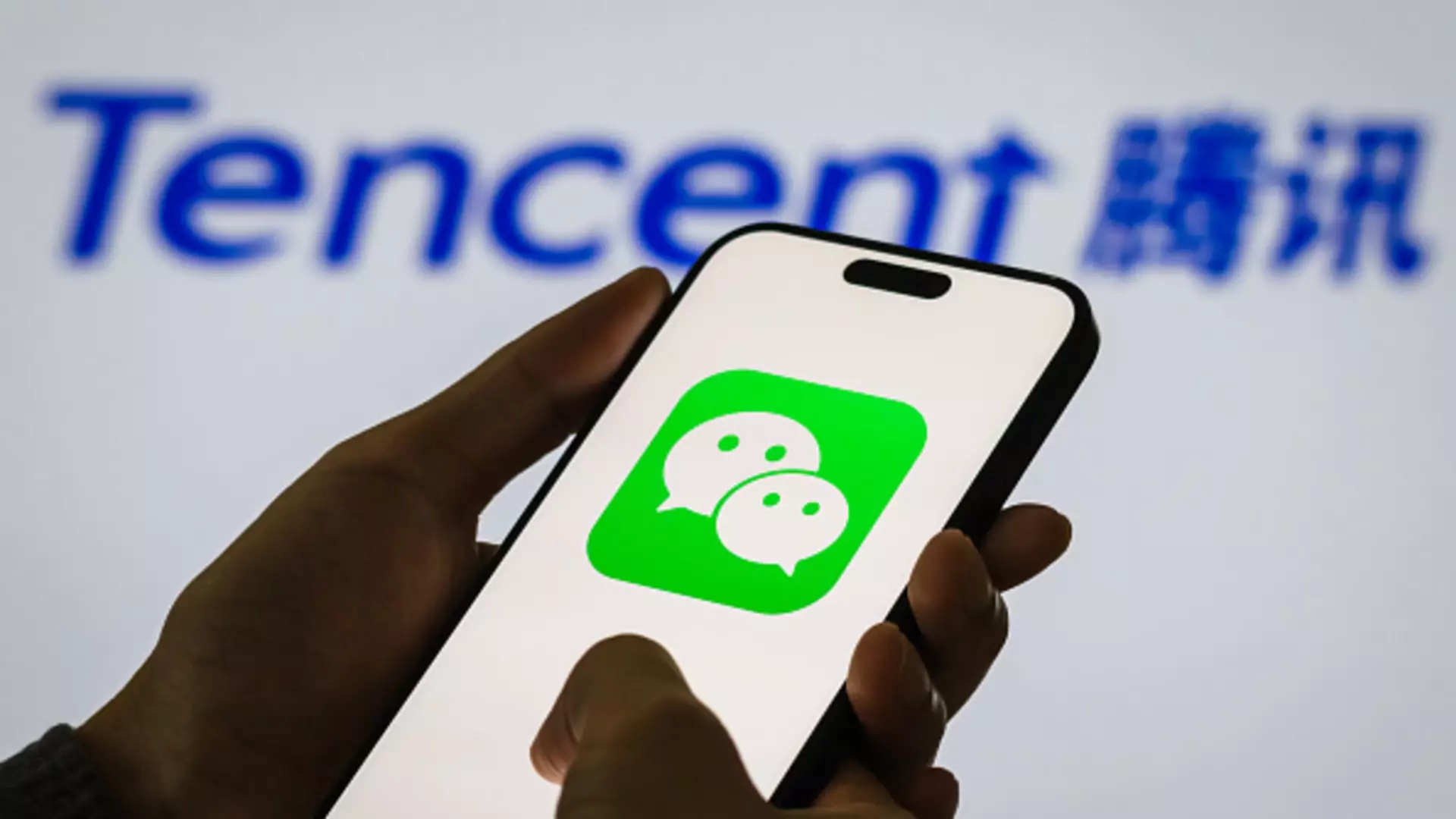Tencent, the titan of the gaming world, is taking aggressive steps to position itself not just as a leader in the gaming sector but also as a formidable competitor in artificial intelligence (AI). The company’s recent earnings report revealed a significant uptick in both revenue and profit, defying expectations while presenting a framework for understanding Tencent’s strategy amidst fierce competition from rivals like Alibaba. The heart of this strategy lies in Tencent’s commitment to enhancing its AI capabilities, which is critical to its ambition of becoming a key player in this rapidly evolving domain.
As revealed, Tencent’s capital expenditure dramatically surged to 76.8 billion yuan in 2024—over three times what the company had allocated the previous year. This sharp increase underscores a fundamental shift in Tencent’s operational blueprint, signaling a robust pivot toward AI innovations that encompass cloud computing and efficient advertising solutions. These moves highlight not only the company’s response to competitors’ advancements but also its desire to leverage AI’s potential for sustained growth.
A Gaming Giant on the Rise: Revenue Growth in a Challenging Market
In a year marked by humid regulatory challenges and macroeconomic headwinds in the Chinese market, Tencent’s gaming revenue has shown strong resilience. The company’s domestic gaming revenue soared by 23% year-on-year to reach 33.2 billion yuan in the fourth quarter of 2024. While some may argue that this surge is a simple rebound from a low base in the previous year, it’s crucial to note the underlying factors that fueled this growth, particularly the popularity of blockbuster titles such as “Honor of Kings” and “Peacekeeper Elite.” This demonstrates Tencent’s ability to adapt to the fluctuating landscape of consumer preferences.
On the international front, Tencent has expanded its footprint with noteworthy titles like PUBG Mobile, which helped bolster its revenues by 15% in the same quarter. This competitive advantage is not solely about having widely recognized names; it also reflects a strategic approach to international markets, capturing a share that mitigates the risks associated with a slowing domestic gaming scene.
Advertising: The New Goldmine Amidst an AI Uprising
While gaming remains the bedrock of Tencent’s revenue, its advertising sector is turning out to be a burgeoning goldmine. Increasingly, Tencent is utilizing its flagship platform WeChat, which boasts over 1.38 billion active users, to monetize user engagement through advanced advertising metrics driven by AI. Revenue from marketing services grew robustly by 17% year-on-year, underscoring an effective response to evolving advertiser demands and expectations.
This growth in advertising revenue is not merely a windfall; it illustrates how AI can enhance marketing strategies, making ads more relevant to users and, consequently, more effective for advertisers. Tencent’s investment in AI-powered advertising infrastructure indicates a deep commitment to harnessing technology for superior customer engagement. This approach not only places the company at the forefront of the advertising giant’s list but also allows it to tap into an additional revenue stream.
Challenges Ahead: The Balancing Act of Investment and Growth
Despite Tencent’s impressive results and forward-looking strategies, the path ahead is fraught with challenges. For instance, the significant investment in GPUs and other AI-related infrastructure raises questions about sustainability. How much can Tencent spend before it starts to hinder its bottom line? The company asserts that the reorganization of its AI teams is designed to boost innovation and efficiency. Still, the heightened capital expenditure might strain resources in the short term, especially if returns are not immediate.
Moreover, Tencent faces the critical question of how to effectively monetize its AI investments across consumer-facing products. While innovations such as the Hunyuan3D-2.0 model reflect immediate capabilities, how these advancements translate into revenue generation will significantly affect the company’s long-term viability in this sector. Competitors like Alibaba and Baidu are also racing to deploy their own AI capabilities, intensifying the need for Tencent to deliver quick and impactful returns.
A Transformative Era for Tencent: The Road Ahead
As Tencent navigates this transformative period, the stakes are undeniably high. The company’s ambitious focus on AI demands not only continuous innovation but also an adept management of resources. Investors and consumers alike are eager to see how Tencent balances its dual identity as a gaming giant and an AI innovator. The success of this dual strategy will ultimately define the company’s future and shape the competitive landscape within China’s tech industry.
Tencent’s strategic pivots toward AI development and gaming expansion hint at a very proactive approach to maintaining its market dominance. Whether these investments will pay off remains an open question, but one thing is clear: the game has just begun, and the implications could ripple across the global tech landscape in unprecedented ways.

